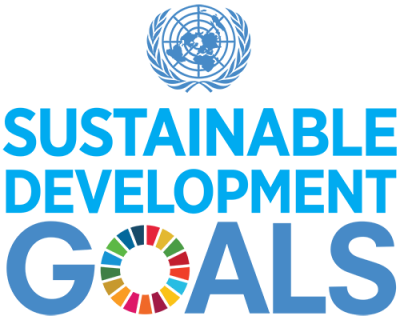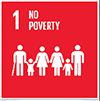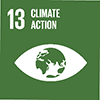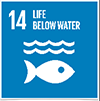

Companies throughout the world are deploying their unique blend of innovation and resources to address complex sustainability challenges. Yet to truly achieve a sustainable future, companies must scale their efforts by working in partnership with other sectors of society, like nonprofits. Rainforest Trust provides a proven model for making a difference with a global impact. By collaborating with Rainforest Trust to meet the United Nations’ Sustainable Development Goals, your company can shape a sustainable future for us all.
PRINT OR DOWNLOAD THIS INFORMATION
What are the United Nations’ Sustainable Development Goals?
Established in 2016, the United Nations’ Sustainable Development Goals (SDGs) are a set of 17 global goals and 169 targets that provide a path for society to work together and create a world without extreme poverty, inequality or climate change by 2030.
Why should your company get involved?
The only way to achieve the United Nations’ ambitious vision is if we all work together. SDGs are a unique opportunity for companies and nonprofits to partner, realizing results at a scale that benefits the entire world. Through this partnership, your business can:
-
Innovate
-
Ensure brand relevance
-
Create stronger connections with your customers, clients, investors and employees
-
And tell stories about your impact that are based in real, on-the-ground action

An elder Matsés in Peru, photo by CEDIA
What are the benefits of partnering with Rainforest Trust?
Rainforest Trust’s unique, cost-effective conservation model for protecting endangered species has been implemented successfully since 1988. So far, we have protected more than 58.9 million acres in over 65 countries.
Thanks to the generosity of our donors, the expertise of our partners and the participation of local communities—through strategies like indigenous land titling and community-managed areas—our reserves are exemplary models of international conservation. Our solution works: 99% of the forest in our reserves has remained standing post-protection. With Rainforest Trust’s deep-rooted experience and proven results, we can help your business align around the specific goal or goals consistent with your brand, values and vision.
What goals will your company support by partnering with Rainforest Trust?
By partnering with Rainforest Trust, you will fund work that meets 11 of the 17 SDGs. Our holistic approach to caring for climate, species and people aligns with 38 specific targets.
 GOAL 1 | End poverty in all its forms everywhere
GOAL 1 | End poverty in all its forms everywhere
1.4 By 2030, ensure that all men and women, in particular the poor and the vulnerable, have equal rights to economic resources, as well as access to basic services, ownership and control over land and other forms of property, inheritance, natural resources, appropriate new technology and financial services, including microfinance.
1.5 By 2030, build the resilience of the poor and those in vulnerable situations and reduce their exposure and vulnerability to climate-related extreme events and other economic, social and environmental shocks and disasters.
![]()
GOAL 2 | End hunger, achieve food security and improved nutrition and promote sustainable agriculture
2.3 By 2030, double the agricultural productivity and incomes of small-scale food producers, in particular women, indigenous peoples, family farmers, pastoralists and fishers, including through secure and equal access to land, other productive resources and inputs, knowledge, financial services, markets and opportunities for value addition and non-farm employment.
![]()
GOAL 3 | Ensure healthy lives and promote well-being for all at all ages
3.9 By 2030, substantially reduce the number of deaths and illnesses from hazardous chemicals and air, water and soil pollution and contamination.
![]()
GOAL 6 | Ensure availability and sustainable management of water and sanitation for all
6.3 By 2030, improve water quality by reducing pollution, eliminating dumping and minimizing release of hazardous chemicals and materials, halving the proportion of untreated wastewater and substantially increasing recycling and safe reuse globally.
6.4 By 2030, substantially increase water-use efficiency across all sectors and ensure sustainable withdrawals and supply of freshwater to address water scarcity and substantially reduce the number of people suffering from water scarcity.
6.6 By 2020, protect and restore water-related ecosystems, including mountains, forests, wetlands, rivers, aquifers and lakes.
6.b Support and strengthen the participation of local communities in improving water and sanitation management.
![]()
GOAL 8 | Promote sustained, inclusive and sustainable economic growth, full and productive employment and decent work for all
8.9 By 2030, devise and implement policies to promote sustainable tourism that creates jobs and promotes local culture and products.
![]()
GOAL 11 | Make cities and human settlements inclusive, safe, resilient and sustainable
11.4 Strengthen efforts to protect and safeguard the world’s cultural and natural heritage.
11.5 By 2030, significantly reduce the number of deaths and the number of people affected and substantially decrease the direct economic losses relative to global gross domestic product caused by disasters, including water-related disasters, with a focus on protecting the poor and people in vulnerable situations.
11.a Support positive economic, social and environmental links between urban, per-urban and rural areas by strengthening national and regional development planning.
11.b By 2020, substantially increase the number of cities and human settlements adopting and implementing integrated policies and plans towards inclusion, resource efficiency, mitigation and adaptation to climate change, resilience to disasters, and develop and implement, in line with the Sendai Framework for Disaster Risk Reduction 2015-2030, holistic disaster risk management at all levels.
GOAL 12 | Ensure sustainable consumption and production patterns
12.2 By 2030, achieve the sustainable management and efficient use of natural resources.
12.8 By 2030, ensure that people everywhere have the relevant information and awareness for sustainable development and lifestyles in harmony with nature.

GOAL 13 | Take urgent action to combat climate change and its impacts
13.1 Strengthen resilience and adaptive capacity to climate-related hazards and natural disasters in all countries.
13.3 Improve education, awareness-raising and human and institutional capacity on climate change mitigation, adaptation, impact reduction and early warning.

GOAL 14 | Conserve and sustainably use the oceans, seas and marine resources for sustainable development
14.1 By 2025, prevent and significantly reduce marine pollution of all kinds, in particular from land-based activities, including marine debris and nutrient pollution.
14.2 By 2020, sustainably manage and protect marine and coastal ecosystems to avoid significant adverse impacts, including by strengthening their resilience, and take action for their restoration in order to achieve healthy and productive oceans.
14.3 Minimize and address the impacts of ocean acidification, including through enhanced scientific cooperation at all levels.
14.4 By 2020, effectively regulate harvesting and end overfishing, illegal, unreported and unregulated fishing and destructive fishing practices and implement science-based management plans, in order to restore fish stocks in the shortest time feasible, at least to levels that can produce maximum sustainable yield as determined by their biological characteristics.
14.5 By 2020, conserve at least 10 percent of coastal and marine areas, consistent with national and international law and based on the best available scientific information.
![]()
Goal 15 | Protect, restore and promote sustainable use of terrestrial ecosystems, sustainably manage forests, combat desertification, and halt and reverse land degradation and halt biodiversity loss
15.1 By 2020, ensure the conservation, restoration and sustainable use of terrestrial and inland freshwater ecosystems and their services, in particular forests, wetlands, mountains and drylands, in line with obligations under international agreements.
15.2 By 2020, promote the implementation of sustainable management of all types of forests, halt deforestation, restore degraded forests and substantially increase afforestation and reforestation globally.
15.3 By 2030, combat desertification, restore degraded land and soil, including land affected by desertification, drought and floods, and strive to achieve a land degradation-neutral world.
15.4 By 2030, ensure the conservation of mountain ecosystems, including their biodiversity, in order to enhance their capacity to provide benefits that are essential for sustainable development.
15.5 Take urgent and significant action to reduce the degradation of natural habitats, halt the loss of biodiversity and, by 2020, protect and prevent the extinction of threatened species.
15.6 Promote fair and equitable sharing of the benefits arising from the utilization of genetic resources and promote appropriate access to such resources, as internationally agreed.
15.7 Take urgent action to end poaching and trafficking of protected species of flora and fauna and address both demand and supply of illegal wildlife products.
15.8 By 2020, introduce measures to prevent the introduction and significantly reduce the impact of invasive alien species on land and water ecosystems and control or eradicate the priority species.
15.a Mobilize and significantly increase financial resources from all sources to conserve and sustainably use biodiversity and ecosystems.
15.b Mobilize significant resources from all sources and at all levels to finance sustainable forest management and provide adequate incentives to developing countries to advance such management, including for conservation and reforestation.
15.c Enhance global support for efforts to combat poaching and trafficking of protected species, including by increasing the capacity of local communities to pursue sustainable livelihood opportunities.
![]()
GOAL 17 | Strengthen the means of implementation and revitalize the global partnership for sustainable development
17. 3 Mobilize additional financial resources for developing countries from multiple sources.
17.6 Enhance North-South, South-South and triangular regional and international cooperation on and access to science, technology and innovation and enhance knowledge sharing on mutually agreed terms, including through improved coordination among existing mechanisms, in particular at the United Nations level, and through a global technology facilitation mechanism.
17.9 Enhance international support for implementing effective and targeted capacity-building in developing countries to support national plans to implement all the sustainable development goals, including through North-South, South-South and triangular cooperation.
17.16 Enhance the global partnership for sustainable development, complemented by multi-stakeholder partnerships that mobilize and share knowledge, expertise, technology and financial resources, to support the achievement of the sustainable development goals in all countries, in particular developing countries.
17.17 Encourage and promote effective public, public-private and civil society partnerships, building on the experience and resourcing strategies of partnerships Data, monitoring and accountability.
Please join us in building a more sustainable and equitable world. Contact us for more information or to talk with one of our team members.

A swimming Malayan Tiger (EN), by Hans Stieglitz
Rainforest Trust has my highest respect... for its reserve-creating projects which have the exceptional merit of being based upon biological research of high quality, exact mapping, and clear statements of what support will accomplish.
The late E.O. WilsonTwo-time Pulitzer Prize winner, and former Rainforest Trust Board Member

Explore our conservation victories

Sign up to receive the latest updates
"*" indicates required fields
100% of your money goes to our conservation efforts.
Our Board members and other supporters cover our operating costs, so you can give knowing your whole gift will protect rainforests.




